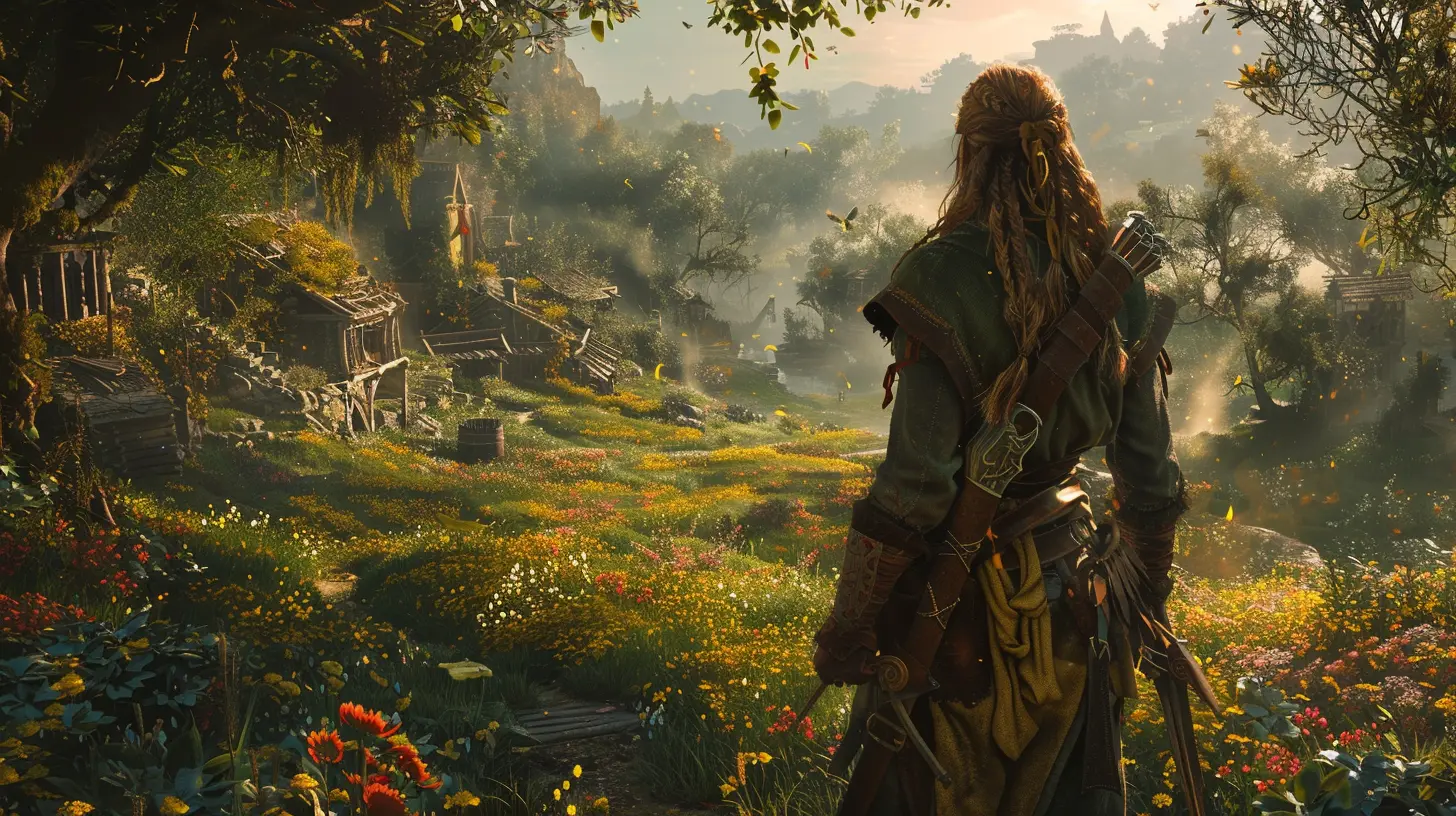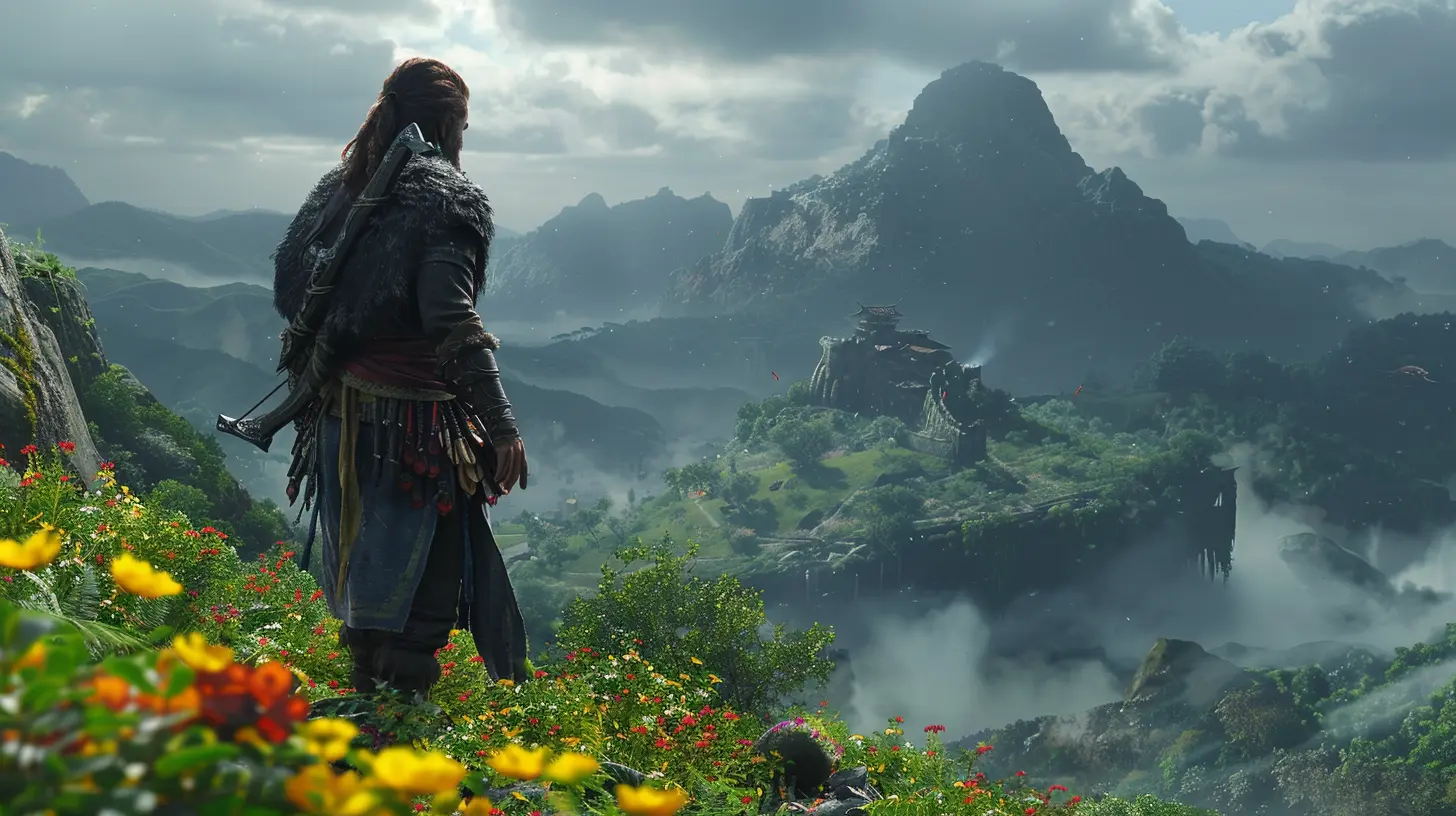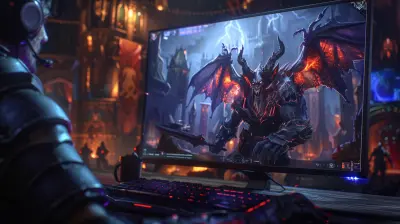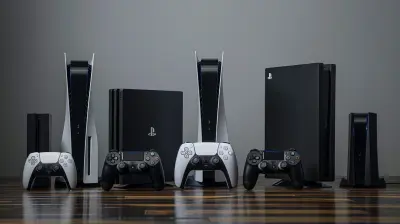Does Winning a Game Award Increase a Developer's Prestige?
7 June 2025
When it comes to the world of video game development, there’s no denying the sheer amount of passion and creativity poured into creating memorable gaming experiences. The blood, sweat, and tears that go into crafting beloved titles often culminate in more than just player satisfaction – sometimes, they lead to accolades, recognition, and even awards. But here’s the million-dollar question: Does winning a game award actually boost a developer's prestige? Or is it just a fancy ornament for the studio's mantle?
Let’s break it down and take a closer look at how these awards impact developers, their reputation, and the broader gaming community.
What Are Game Awards, Anyway?
Before diving into the meat of the discussion, let’s clarify what game awards even are. Think of game awards as the Oscars or Grammys of the gaming world – a chance to honor exceptional talent and creativity. These awards are handed out by organizations, media outlets, or fan communities to recognize outstanding achievements in various categories such as game design, storytelling, visuals, and innovation.Some of the biggest and most renowned awards in the gaming industry include:
- The Game Awards (TGA) – Pretty much the gold standard of gaming accolades. Often dubbed the gaming equivalent of the Oscars.
- The BAFTA Games Awards – Celebrating artistic and technical excellence in gaming.
- DICE Awards – Hosted by the Academy of Interactive Arts & Sciences, with a strong focus on innovation.
- Golden Joystick Awards – One of the longest-running gaming awards, with fan-voted categories.
These awards are handed out annually and are often accompanied by glitzy events, trailers, and celebrity appearances. But the real question remains: Do they matter beyond the fanfare?
The Short-Term Buzz: Awards as Marketing Powerhouses
Let’s get one thing straight – winning a prestigious game award can be an absolute marketing juggernaut for a developer. Remember when "The Last of Us Part II" swept The Game Awards in 2020? Social media exploded, mainstream outlets covered the story, and the game got an undeniable sales boost. That’s the power of awards.Here’s why awards drive short-term buzz:
- Increased Visibility: Awards put a game and its developer in the spotlight, making it impossible for gamers (and even non-gamers) to ignore. Winning an award is like having a billboard placed in the busiest intersection of the gaming world.
- Trust Amplifier: Gamers are bombarded with dozens of new games every month, and awards serve as a stamp of quality. For players on the fence, "award-winning" can be the nudge they need to hit that buy button.
- Social Proof: Humans are wired to value things others recognize and celebrate. When a game wins an award, it instantly benefits from this psychological effect.
But let’s be real – while these factors boost sales and attention, they often focus more on the game itself rather than the developer. So, does the developer actually gain long-lasting prestige?
Does Prestige Stick? Short-Term Spike vs. Long-Term Gains
The tricky thing about prestige is that it’s not just about winning an award – it’s about what you do afterwards. Think of it like winning a championship ring in sports. Sure, it’s cool to have that one shining moment in the spotlight, but staying relevant requires consistency.For developers, the equation is similar. Winning an award does bump their brand recognition temporarily, but keeping that prestige alive means they’ve got to:
1. Continue Delivering High-Quality Games: Gamers have short memories. Sure, Bioware was once heralded as an industry titan thanks to "Mass Effect" and "Dragon Age." But after games like "Anthem" flopped, their reputation took a serious hit. Prestige isn’t a one-and-done deal; it’s an ongoing journey.
2. Leverage the Spotlight: Developers need to use their award win as a platform to build trust and solidify themselves as leaders in the industry. Think CD Projekt Red after "The Witcher 3" won dozens of awards. They became known not just as great game developers but as champions of player-first values – though they later faltered with "Cyberpunk 2077."
So, does winning an award guarantee prestige? Not unless it’s followed by consistent quality and smart branding decisions. 
The Prestige-to-Business Pipeline: Does It Impact Opportunities?
Winning a game award doesn’t just boost public perception – it also opens doors behind the scenes. Think about it: Publishers, investors, and collaborators are always on the lookout for trustworthy and competent partners. Awards act as shorthand for “this team knows what they’re doing.”Here’s how it plays out in a professional context:
- Better Publishing Deals: When a developer wins an award, publishers are more likely to take notice. It’s easier to negotiate favorable terms when you’ve got trophies to back up your demands.
- Talent Attraction: Awards draw in top-tier talent. Aspiring developers want to work for studios with proven track records. After all, who wouldn’t want to be part of something award-winning?
- Investment Magnet: Investors are more willing to put money into a studio that has a history of producing acclaimed titles.
In short, game awards don’t just boost a developer’s street cred with players – they also make them more appealing in the business side of the industry. It’s like adding a Michelin star to a restaurant: You’re signaling to the world that you’re the real deal.
Prestige vs. the Narrative: Does Every Award Matter?
Not all awards are created equal. While winning The Game Awards’ coveted Game of the Year trophy might make headlines, winning an obscure regional award might not move the needle much. Prestige, in this case, depends heavily on the narrative surrounding the award.For example:
- If a small indie studio wins a major category at The Game Awards, it’s a Cinderella story. Gamers celebrate the “little guy” beating the odds, and the studio’s prestige skyrockets. Just ask Supergiant Games, whose indie darling "Hades" won Game of the Year from multiple outlets.
- On the flip side, if a big AAA studio wins yet another trophy, it’s often met with an eye-roll. Why? Because gamers expect it. It’s like watching a billionaire win the lottery – good for them, but not exactly groundbreaking.
So, while awards can increase prestige, context matters. The “story” behind the win often drives how much prestige a developer gains.
The Flip Side: Do Awards Ever Backfire?
Here’s an interesting twist: Does winning an award ever harm a developer's prestige? While this isn’t common, it isn’t impossible.Consider scenarios like these:
- Backlash Over Controversial Wins: Sometimes, a game wins an award that players feel it didn’t deserve. Remember the outrage when "No Man’s Sky" won awards despite its rocky launch? Events like these can sometimes spark debates that overshadow the award itself, placing developers under scrutiny.
- Overreliance on Prestige: Some developers might feel pressured to replicate their award-winning formula, leading to creative stagnation. If they can’t match their past success, their prestige might begin to fade.
These cases are rare, but they serve as a reminder that awards aren’t always an unequivocal win.
Does Prestige Really Matter to Gamers?
Let’s flip the script for a moment. While we’ve explored how awards affect developers, does prestige even matter to the average gamer?Well, that depends. Casual gamers may not care much about awards and are more likely to buy games based on trailers, reviews, or recommendations. Hardcore gamers, on the other hand, tend to follow the industry more closely and might use awards as an indicator of a developer’s credibility.
But ultimately, what really matters to gamers isn’t how many awards a developer has won – it’s the quality of the games they create.
The Final Judgment: A Double-Edged Sword?
So, does winning a game award increase a developer’s prestige? Yes, but with caveats.Awards can be powerful tools for boosting visibility, credibility, and even business opportunities. They can elevate a developer’s reputation in the short term and open doors for future success. However, long-term prestige requires more than just shiny trophies – it takes consistent delivery of quality games and the ability to adapt to player expectations.
At the end of the day, awards are like a cherry on top. Nice? Definitely. Necessary for building a legacy? Not always. Because in the gaming industry, prestige ultimately comes down to the one thing that really matters: creating games that resonate with players, stand the test of time, and leave a lasting impact.
all images in this post were generated using AI tools
Category:
Game AwardsAuthor:

Lana Johnson
Discussion
rate this article
2 comments
Victor Snyder
Absolutely, winning a game award significantly enhances a developer's prestige, elevating their brand, attracting talent, and boosting sales. Recognition validates their hard work and creativity in the industry.
June 9, 2025 at 4:43 AM

Lana Johnson
Thank you for your insightful comment! I completely agree—game awards play a crucial role in enhancing a developer's prestige and can lead to numerous valuable opportunities.
Sybil Sweeney
Winning a game award undoubtedly elevates a developer's prestige, serving as validation of their creativity and talent. It not only boosts visibility but also enhances credibility, attracting both players and potential collaborators in an increasingly competitive industry.
June 7, 2025 at 3:57 AM

Lana Johnson
Absolutely, winning a game award significantly boosts a developer's prestige, validating their creativity and talent while enhancing visibility and credibility in the industry.


